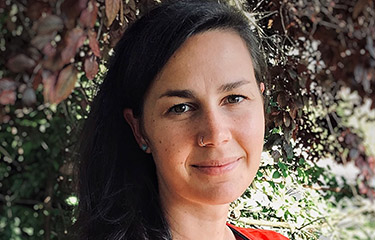The World Benchmarking Alliance (WBA) recently released its third and final Seafood Stewardship Index, benchmarking the world’s 30 largest seafood companies against the United Nations’ Sustainable Development Goals (SDGs). In a SeafoodSource interview, WBA SSI Lead Helen Packer discussed the ultimate version of the report and what it says about the seafood industry.
SeafoodSource: What are the biggest takeaways from this year’s index?
Packer: The first big takeaway is that even though almost all companies disclose some activities and efforts toward environmentally sustainable and socially responsible seafood – through actions such as certifications, policies, engagement activities – most do not disclose SMART [specific, measurable, achievable, relevant, and time-bound] targets. For companies that have targets, these usually only address part of their portfolio, such as a specific species, and it is not clear how this prioritization is made.
Moreover, many targets are not time-bound and are not translated into key performance indicators (KPIs) that allow for robust progress measurement and reporting. This lack of target-setting and reporting means it is difficult for stakeholders to get an overview of where companies stand in regard to their environmental and social risks and impacts.
The second big takeaway is the lack of evidence showing companies taking a due diligence approach in regard to IUU fishing and human rights risks, especially in their supply chain, which starts with a risk assessment and is followed by mitigation. Conducting comprehensive and robust risk assessments can be a lengthy and complex process, but it is necessary for companies to get a better view of those risks and impacts to take appropriate actions.
SeafoodSource: What are some of the trends you have seen in the industry over the last three assessments?
Packer: There’s definitely been an improvement in reporting and, therefore, transparency. Some companies are improving their reporting, and others have started reporting when they were barely reporting at all. This is a good sign, as improved reporting means companies also have better internal visibility and understanding of their material issues and the risks and impacts associated with them.
We’ve also seen some improvements in terms of engagement with environmental sustainability programs such as certifications, ratings, and improvement projects, as well as engagement in pre-competitive collaboration groups. Peer learning and collaboration through such platforms is key and necessary for the industry to move forward on sustainability issues, and these platforms are also jumping on the reporting and transparency wagon by improving these processes themselves.
However, we are seeing painstakingly slow progress on the IUU and human rights front. Compared to 2021, only five additional companies – compared to two in 2021 – have started to implement some of the steps involved in human rights due diligence. With regards to IUU, we only found evidence of three companies having assessed IUU risks in their supply chain.
SeafoodSource: What have been some of the best-performing or most improved companies throughout the three iterations of the index?
Packer: The best-performing companies have not changed much since 2019, with Thai Union, Mowi, Nutreco, and Cargill having remained in the lead over the years. However, we have seen two companies – Nueva Pescanova and Nomad Foods – come into the lead group since 2019, going from mid- to top-ranking companies.
These changes are partly due to improvements in our methodology by being better able to capture what companies are doing, but also improvements in their practices and reporting. In 2023, we saw two companies – Trident Seafoods and Marubeni Corporation – making significant improvements in their scores and ranks, mostly due to improved reporting and transparency.
SeafoodSource: What does the future of the program look like?
Packer: The 2023 Seafood Stewardship Index was the last iteration of the index. However, 24 out of the 30 companies in the index will continue to be assessed by the WBA under its food and agriculture and nature benchmarks, which look at aspects relevant to the seafood industry such as sustainable sourcing, human rights due diligence, and sustainability governance.
The seafood team is working with the food agriculture and nature teams to identify opportunities that lead to seafood-specific insights. Additionally, we are currently working on a simple self-assessment tool that will enable any company to assess itself using the Seafood Stewardship Index methodology.
Photo courtesy of World Benchmarking Alliance







